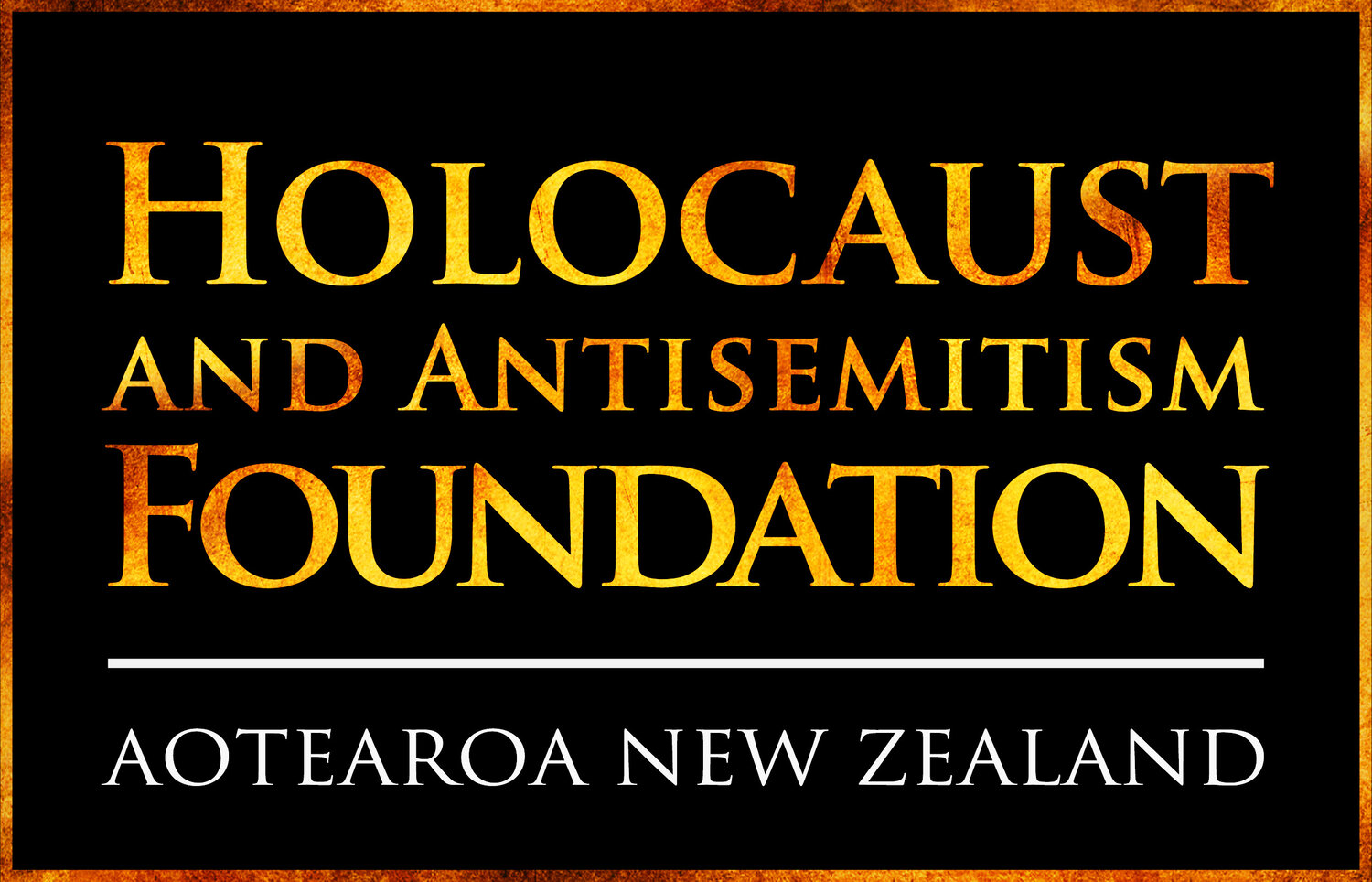What Really Changed in 1945? Yom HaShoah Speech
This speech was given at the Yom HaShoah service,
Auckland Hebrew Congregation, New Zealand, 27 April 2022
In the fourteen years we have spent interviewing and photographing survivors for the Holocaust and Antisemitism Foundation we have encountered stories of tragedy and depravity, and all too rarely, courage, compassion and conviction.
In 2019 we visited Auschwitz in Poland and Le Chambon Sur Lignon in the South of France. Some of you will recall that at last year’s event we played the three minute film we produced as a result of our visit to Le Chambon.
Although it is less than a day’s journey from Auschwitz to Le Chambon, they may as well occupy distant universes.
Auschwitz was a product of Europe’s most culturally, scientifically and educationally advanced society. In contrast, Le Chambon and the surrounding towns were home to mostly simple peasant farmers and villagers. Led by Protestant Pastor Andre Trocme, the people of Le Chambon were characterised by courage, compassion, and a willingness to defy authority in order to live according to conscience. As a consequence the 5000 people in the Le Chambon area were able to rescue up to a similar number of Jews.
If there is tragedy associated with Le Chambon it is that it was not replicated throughout Europe.
In 1945 the world emerged from war. What came to be known as the Holocaust was brought to an end.
But what really changed in 1945? We know the allies prevailed but in regard to what has drawn us together tonight, what really changed?
Did ordinary Europeans repudiate the Jew hatred that for centuries had manifested in economic, social and religious discrimination?
Were the masses of willing accomplices brought to account, or at least filled with remorse?
Did the philosophers who influence society from above abandon their intolerance of Jewish distinction and particularity?
Did theologians reject the toxic and incoherent supersessionism that for centuries had driven Christian persecution of Jews?
Was there a change of heart in the Muslim leaders so keen to see Hitler’s policies implemented in their own lands?
Were the western political and military leaders who knew what was happening to European Jews and yet chose to do little or nothing - were they brought to account?
Of the many nations that chose to close their doors to Jews fleeing certain calamity, how many were willing to acknowledge their moral failure?
Did the philosemitism and courage of Le Chambon begin to permeate other European cultures?
The answers to these questions are disturbing, confronting and relevant.
The Holocaust was unique and that very uniqueness must be fiercely defended. And yet it stands in a series of historical events that form an essential context. Namely, millennia of persecution, marginalisation and antagonism toward the Jewish people.
Indeed, antisemitism has come to function as a social constant, as reliable as gravity, as unrelenting as the waves of the sea.
Enemies have been many and friends have been few. And the character of friends like those of Le Chambon is ultimately only proven in times of peril. The Shoah taught us that those considered friends are worse than irrelevant if they will not act.
Another painful lesson of the Shoah is that when an entity declares its genocidal intentions it must be believed.
In the 1930s, some of Europe’s brightest minds chose not to see what was obvious - that European Jewry was destined for disaster. The act of seeing the obvious, bore just too great a price. And the call to think the unthinkable, required vanishingly rare courage.
Thus, tonight we commemorate the liberation and yet recognise with sadness that in the broader context it represents, as it were, a punctuation - an abeyance in a state of Gentile hostility extending three and half millennia, of a persistent hatred that reinvents itself from age to age.
Sadly, too little changed in 1945. And if we have a debt to those who perished it includes a willingness to think honestly about the causes of the Shoah. And a call to honour and emulate those who act in the spirit of Le Chambon.
It is not sufficient merely to remember. If the need arises, we must be willing to think what many deemed unthinkable, and to see what many refused to see.
And having thought and having seen, we have a debt to act.

